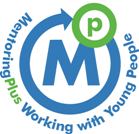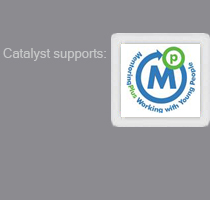 Successful entrepreneurs and business leaders will often mention the name of someone who has inspired or mentored them at some point – and often it is an ongoing relationship that will will last for years. Having a mentor means having a supportive relationship with someone that can influence your life in a positive way and can help to develop self-esteem and confidence. For vulnerable young adults in a society with low social mobility this can be a life changing experience.
Successful entrepreneurs and business leaders will often mention the name of someone who has inspired or mentored them at some point – and often it is an ongoing relationship that will will last for years. Having a mentor means having a supportive relationship with someone that can influence your life in a positive way and can help to develop self-esteem and confidence. For vulnerable young adults in a society with low social mobility this can be a life changing experience.
This is why Catalyst are supporting Mentoring Plus – an independent Bath based youth crime reduction and prevention initiative working with young offenders or those who at risk of offending aged between 12 and 17.
The overall aims of Mentoring Plus are to
The Mentoring Plus model of mentoring and social/educational development is one that the staff and volunteers are sincerely committed to, believing that the combination of one to one support and structured activities gives young people the maximum opportunity of succeeding. They hope that at the end of the project all the young people involved do not offend and in addition have an improved quality of life.
As explained by one of the mentors “Mentoring is not about radical change. It’s about nudging someone a few degrees in a different direction. But these degrees can mean the difference between prison and a job, and that really matters“.
For more information see the Mentoring Plus website.


 I have Just came back from a two day biotech conference. I go to conferences to meet people, find opportunities, and keep up to date with the sector – probably in the that order. Inevitably I get my fair share of impromptu pitches and I am always amazed at the gap between the expectations of entrepreneurs and investors. Entrepreneurs typically play down risk, over value propositions, and under estimate the time it takes to do anything. Excessive bullishness does not instil confidence it breeds suspicion and a lack of credibility. Investors want to see realistic targets. I would much rather have the view that the entrepreneur was being excessively cautious rather than over optimistic. The mantra should be “under promise over deliver”.
I have Just came back from a two day biotech conference. I go to conferences to meet people, find opportunities, and keep up to date with the sector – probably in the that order. Inevitably I get my fair share of impromptu pitches and I am always amazed at the gap between the expectations of entrepreneurs and investors. Entrepreneurs typically play down risk, over value propositions, and under estimate the time it takes to do anything. Excessive bullishness does not instil confidence it breeds suspicion and a lack of credibility. Investors want to see realistic targets. I would much rather have the view that the entrepreneur was being excessively cautious rather than over optimistic. The mantra should be “under promise over deliver”.

